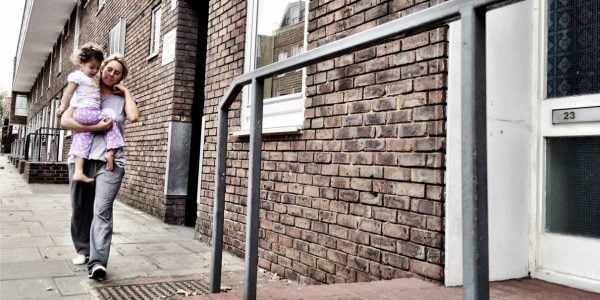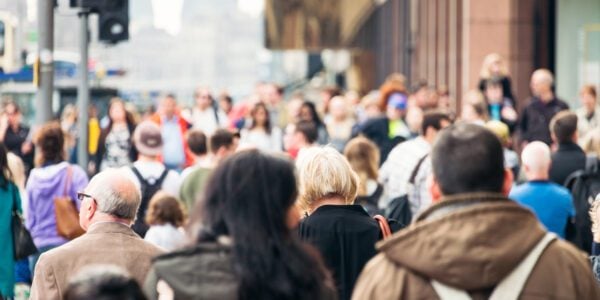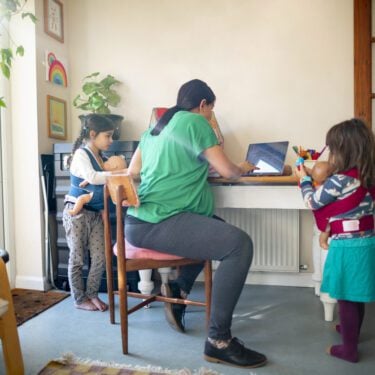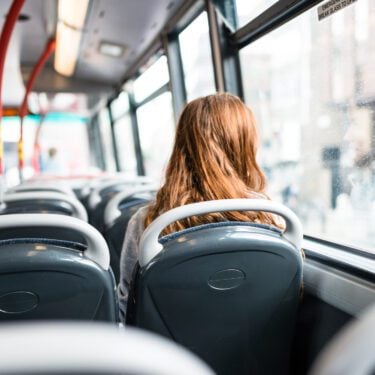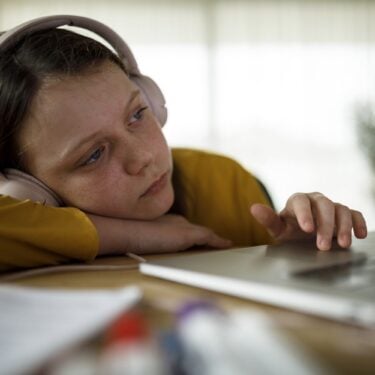The extra cost of food, energy, and entertaining, distracting and home-schooling children has meant that low-income families with children are twice as likely to have increased, rather than reduced, their spending during the pandemic so far.
Pandemic Pressures – a collaboration between the Resolution Foundation and the Nuffield Foundation-funded COVID Realities research project at the University of York – combines survey work with the accounts of low-income parents and carers to highlight how the spending patterns of low-income families with children have been very different to the wider population during the pandemic, and during the first lockdown in particular.
The report notes that the pandemic has been marked by a huge reduction in overall spending as social activities have been curtailed by public health restrictions.
However, this ‘enforced saving’ has affected higher income households more, as they spend 40 per cent more of their income on recreation, leisure and hospitality activities than the poorest fifth of households (24% vs. 17%).
In stark contrast to this overall picture, the research shows that the pandemic has in many cases made it more expensive to live on a low income with children – and particularly so during lockdowns.
Over-in-three (36%) low-income households with children increased their spending during the pandemic so far (rising to 37% during the first lockdown), compared to around one-in-six (18%) who reduced their spending. Among high-income households without children, 13% have increased their spending, compared to 40 per cent who have reduced it.
The report highlights three main reasons for these extra pandemic pressures:
First, parents identified that having children at home 24 hours a day led to higher food and energy bills, while the need to entertain them during the lockdowns, in place of activities such as visiting families and public libraries, has brought additional costs.
Second, parents identified additional costs associated with home-schooling, such as acquiring laptops, paying for internet access and obtaining additional study materials.
Third, families noted that the cost of buying food had risen, due to the reduction in store promotions, and because the need to shield has forced many to use more expensive home delivery options, while the need to avoid public transport means those without access to a car have had to use more expensive shops closer to home.
The report notes that these spending pressures for low-income families have come off the back of living standards that have stagnated pre-pandemic. Incomes among the poorest fifth of households in 2018-19 were no higher than they were back in 2001-02.
With the third national lockdown likely to last several months and put families under further pressure, the report calls on the Chancellor to urgently do more to support family incomes during the pandemic.
The top priority should be to maintain the £20 a week uplift to Universal Credit (UC) into next year – otherwise six million households face having their incomes cut by over £1,000. The report authors add that the Chancellor should also strengthen the safety net for families with children in light of the extra cost pressures they face.
Mike Brewer, Chief Economist at the Resolution Foundation, said:
“The pandemic has forced society as a whole to spend less and save more. But these broad spending patterns don’t hold true for everyone.
“The extra cost of feeding, schooling and entertaining children 24/7 means that, for many families, lockdowns have made life more expensive to live on a low income.
“With the country going into another lockdown for at least the next few months, the Chancellor should acknowledge the pandemic pressures that families with children face and reconsider plans to cut Universal Credit in just a few months’ time.”
Dr Ruth Patrick, Lecturer in Social Policy at the University of York, who leads the Covid Realities research programme said:
“The idea of being able save money during this pandemic is just a world away from the experiences of the parents and carers we’ve been working with through the Covid Realities research project.
“Parents have found their spending increase, as some of the usual strategies they use to get by on a low income – shopping around for the best deal, going to families and friends for a meal when the cupboards are empty – have become suddenly impossible. The conditions the pandemic has created make it harder still to get by on a low-income, creating extra financial pressures, rooted in the requirement for families and their children to stay at home and restrictions on household mixing.
“While the need for the lockdown is clear, there is an equally urgent need to address the additional financial pressures that families on a low-income face through greater income support to families with dependent children.”

